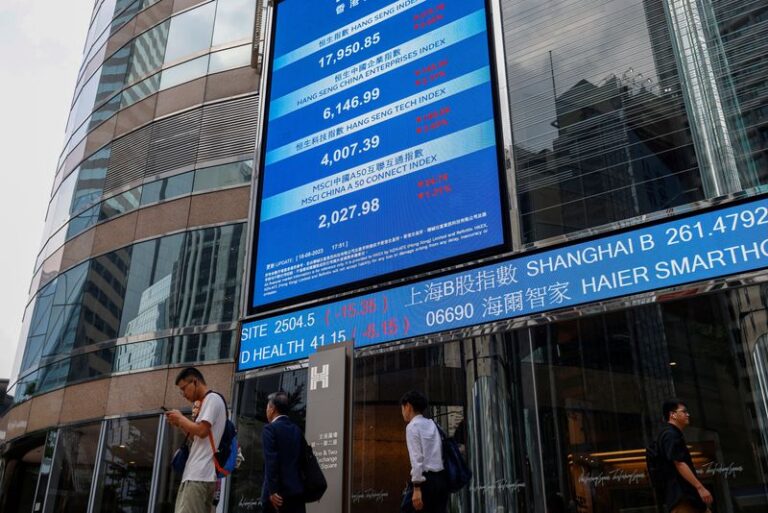By Summer Jen
HONG KONG (Reuters) – Global hedge funds increased their holdings in Chinese stocks for the fourth week in a row, joining many investors looking to get ahead of a market recovery.
Stock prices in China, the world’s second-largest economy, rose after falling since February as the Chinese government strengthened measures to address economic challenges and macroeconomic indicators showed signs of recovery. ing.
Goldman Sachs’ prime brokerage unit said in a Friday note seen by Reuters on Tuesday that hedge funds had bought Chinese stocks in seven of the past eight weeks. The purchase price was not disclosed in the memo.
China’s market has unexpectedly outperformed major global markets so far this year, with Hong Kong’s Hang Seng Index up by a third from its low in January, and the MSCI China Index up 16% so far this year.
Goldman Sachs on Monday raised the price targets for both MSCI China and the Chinese blue-chip CSI300 index.
Goldman Sachs said in a separate note Friday that some hedge fund investors are betting on rising stocks by buying call options as a way to take advantage of big gains from rising stocks.
“The combination of decade-low allocations to China through both hedge-only and long-only obligations, and the blistering pace of the recovery, has caught investors off guard over the past few months,” analysts led by Kinger Lau said.
“The resulting performance pressures may have motivated investors to fill the underweight gap or increase their exposure to Chinese stocks, potentially strengthening and accelerating the rally as the positive spiral took hold. There is.”
In the latest move to restore market confidence, China last week launched a 1 trillion yuan ($138 billion) stimulus bond sale and announced a series of measures to support the country’s struggling housing market.
But not all investors are convinced of the economic recovery story.
New York-based hedge fund Indus Capital remains underweight on China, although it has added a few stocks recently.
Byron Gill, managing partner at Indus Capital, pointed to mounting deflationary pressures in the country, saying, “The market still offers more opportunities to go short than long, especially as ongoing economic issues have increased volatility. We are providing it.”
(1 dollar = 7.2392 Chinese Yuan)
(Reporting by Summer Jen; Editing by Mrigank Dhaniwala)

